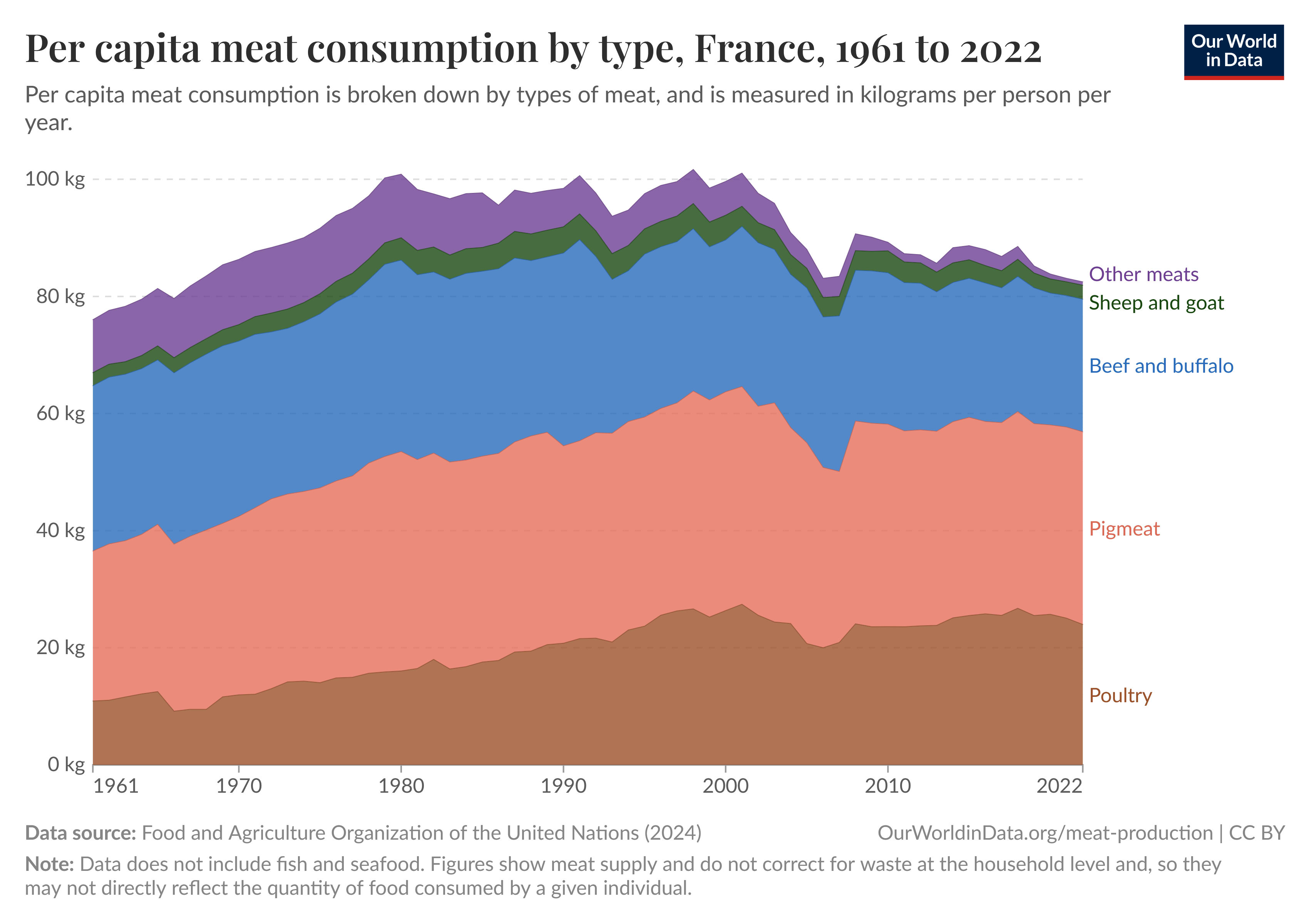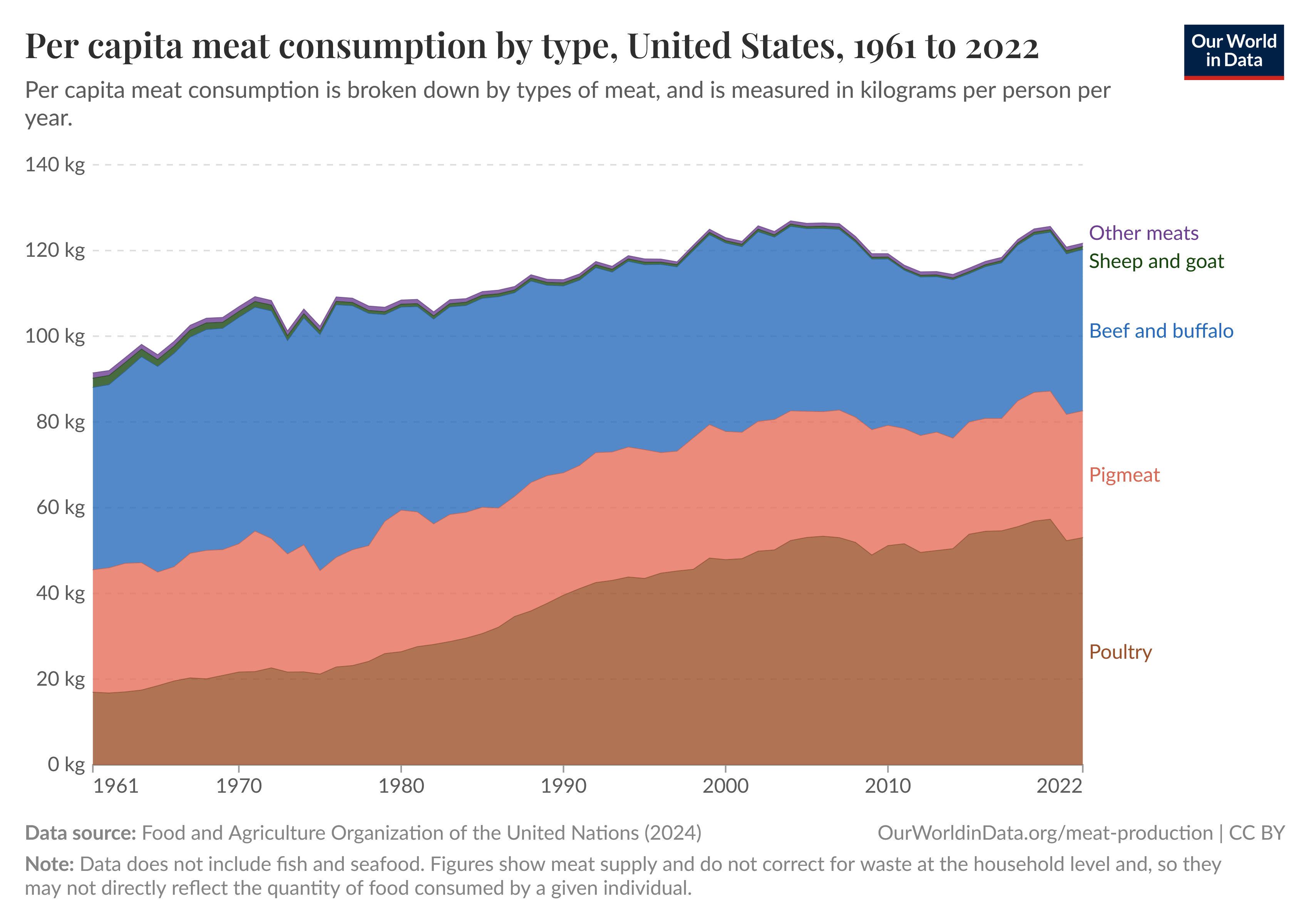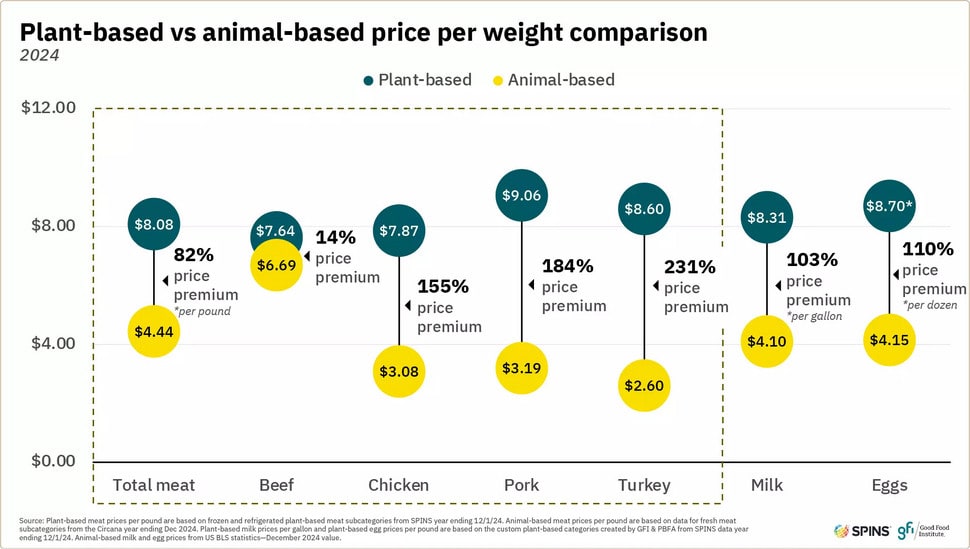
Tom Bry-Chevalier🔸
Bio
PhD candidate - economic and environmental stakes of alternative proteins - Université de Lorraine.
Advisor - ONEI (French National Observatory on Insect Farming)
Teaching about Effective Altruism - Université PSL (Paris Sciences & Lettres)
Cofounder of the first EA chapter in France (2015)
Posts 3
Comments12
Thank you for your kind comment!
Regarding pets, I know that the company Meatly has marketed a product with cultivated cells in the United Kingdom. But I'm not sure how widely available it is. My opinion is that products that include small quantities of cells will exist, but will remain in the premium pet food segment, similar to how insect-based products are positioned today.
Thank you for your comment!
To clarify my position regarding your question: "It seems like you think that existing plant-based options are close to price/taste competitiveness already, was my above impression incorrect?"
In my assessment, plant-based meat still has significant ground to cover in terms of both price and taste parity when viewed holistically, despite notable exceptions in the market.
For taste parity specifically, we've made remarkable progress with certain products. Nuggets, for instance, have essentially achieved taste equivalence according to some studies. Fast-food burgers are also approaching this milestone. Additionally, we occasionally see standout products in various categories that come remarkably close to their animal-based counterparts, as exemplified by the examples I mentioned in my post.
Regarding price parity, while still distant overall, the gap continues to narrow, particularly for beef alternatives.
What often gets overlooked in this discussion—and what I'd like to emphasize—is the rapid advancement of plant-based alternatives. The quality improvement over the past decade has been extraordinary. Meanwhile, cultivated meat faces a lengthy timeline before achieving significant market presence (even in hybrid formulations). Therefore, comparing an idealized future cultivated product against today's plant-based options creates a false equivalence.
I'm confident that within the next 10-15 years, we'll achieve near-complete price and taste parity across numerous animal product categories through plant-based innovation. By then, the supposed advantages of cultivated meat may prove far less compelling than currently anticipated.
Hello Akash and thank you for these pertinent questions! I'll try to answer all of them, but please let me know if you feel I've missed any of your points.
"Would commercially viable cultivated meat more favorably alter consumer preferences over time?"
This is quite difficult to determine! Many studies on consumer attitudes make the assumption that cultivated meat would be priced similarly to other alternatives. Even in this scenario, it remains relatively unpopular and much less favored than plant-based options. For example, a study by Van Loo et al. (2020) attempted to define potential market shares of different meat alternatives through a DCE (Discrete Choice Experiment). This study found that cultivated meat had the lowest estimated market share among the alternatives tested. Interestingly, the study also observed significant variance in willingness-to-pay for cultivated meat, suggesting that some consumers are highly motivated and therefore less price-sensitive, while others want nothing to do with it.
Of course, the insights we can draw are limited: cultivated meat remains relatively unknown today, and even more so in 2020. We know that familiarity with a product influences consumer interest. We also know that people's stated preferences often poorly reflect their actual consumption behavior, with a tendency to overestimate their willingness to try and adopt new products. So my answer would be: we don't know. And it would seem presumptuous to say yes.
"A non-negligible portion of vegns abandon their vegnism — would introduction of cultivated meat improve retention of animal-free consumption patterns?"
This is hard to say. From what we know from certain studies, while veg*ns generally express more favorable attitudes toward cultivated meat than the average population, they exhibit less willingness to try it/pay for it. This suggests they're supportive primarily because they see the environmental and ethical benefits, although they themselves might not be particularly interested. And again, we would need to see whether plant-based meat wouldn't serve just as well as cultivated meat in this case.
"How would introduction of cultivated meat affect flexitarian dietary choices? Flexitarians eat a combination of animal- and plant-based meat. When cultivated meat becomes commercially viable, would flexitarians replace the former or the latter with cultivated meat?"
That's an excellent question and one I'm currently trying to answer in my ongoing research through a DCE! I should have more insights in a few months. :)
"Is this true? It seems that as chicken did displace beef consumption by 40% (assuming consumption ~ supply) or am I grossly misunderstanding the chart above? Further, isn't there an upper bound to how much addition can happen? Meat became cheap and widely available, incomes rose, people started eating more of everything, so consumption increased. But there is only so much more that one can eat, so at some point people started making cost-based trade-offs between beef and chicken. If cultivated chicken were to be cheaper than animal-based beef or chicken, shouldn't we expect people to start making similar trade-offs?"
I'm more familiar with European figures. Looking at France, for example, we don't really observe a substitution effect between chicken and beef.

Regarding the United States, I'm somewhat surprised by the sharp decline in the mid-70s, which occurred much more rapidly than the increase in chicken consumption during the same period. This suggests an external shock to me – perhaps due to the economic crisis – which would explain why beef was hit particularly hard, being the most expensive meat. This is especially notable given that beef consumption eventually stabilized while chicken consumption continued to increase from the 2010s onward.
However, this would require further investigation on my part. In any case, based on the graph you've provided, it's not obvious that chicken directly substituted for beef; there may simply have been a decrease in beef consumption, possibly due to external factors.
Furthermore, several sources are sometimes inconsistent regarding the evolution of meat consumption by product type, making it difficult to get a clear picture. For instance, in France, there's a discrepancy between World Bank data and data from the Ministry of Agriculture. Similarly here in the US, World Bank data presents a different picture than USDA data.

In short, this is all quite complicated and would require an entire post to untangle. However, I maintain my position that the increase in chicken consumption did not lead to a major substitution effect for beef consumption. In my view, the reduction in beef consumption is explained by other factors, particularly economic issues, health concerns, and more recently, environmental considerations.
Hi David, and thank you for your comment!
I may have a certain bias since I work in the field of cultivated meat, but I've frequently observed a strong interest in cultivated meat during my interactions with other EAs. This seems particularly pronounced in France, but I've had similar impressions when engaging with EAs at international events like EAG. Truthfully, this wouldn't be surprising, given that the demographic profile of EAs closely aligns with those who tend to be favorably disposed toward cultivated meat. This interest is also visible in the support some EAs provide to organizations such as GFI or ProVeg that advocate for cultivated meat, without the focus on cultivated meat being questionned.
Regarding the assertion that "it would be more important to determine whether alternative proteins (including cultivated meat) can become as tasty, convenient, and significantly cheaper than animal products," I believe this is far from self-evident. Unfortunately, recent exemples don't necessarily support this perspective. While achieving these qualities represents a necessary step, there's no guarantee it will suffice. Moreover, while I wouldn't be surprised if taste parity becomes less problematic for plant-based products within the next 10-15 years, I expect price will likely remain a significant challenge for cultivated meat.
Thank you for your kind message, I really appreciate the feedback!
I often find myself hesitant to contribute to the EA Forum, concerned that my posts might not meet the forum's standards. Moreover as I feel more comfortable writing in French than in English, I tend to publish on my blog instead. Encouragement like yours is very much appreciated and definitely motivates me to share my thoughts more frequently.
Together with The Insect Institue, we have recently written several critical reviews of insect farming in terms of economic, environmental, consumer acceptability and waste recycling aspects.
Although we are not providing new data with these articles, we are compiling data from both the academic and industrial worlds to provide a critical view, which is still fairly rare. TII have 6 papers under review or accepted with minor or major revision.
All six preprints are now up and publicly available.
- Have the environmental benefits of insect farming been overstated? A critical review : https://doi.org/10.32942/X2W60R
- Beyond the buzz: A review of the prospects of replacing meat consumption with insect-based foods : https://doi.org/10.32942/X2RG89
- Is turning food waste into insect feed an uphill climb? A review of persistent challenges : https://doi.org/10.32942/X2NG8C
- Insect-based livestock feeds are unlikely to become economically viable in the near future : https://osf.io/preprints/socarxiv/fdbwg
- Bugs in the system: The logic of insect farming research is flawed by unfounded assumptions : https://osf.io/preprints/socarxiv/7nmzj
- Offshoring insect farms may jeopardise Europe's food sovereignty : https://osf.io/preprints/socarxiv/6wq4f
Thank you Bob, Daniela and Abraham for this initiative! I hope you will succeed in raising the necessary funds.
A little anecdote to illustrate just how useful I think your work would be: For one of my forthcoming papers addressing the issue of insect farming, I had the opportunity to realise how few studies there are on the question of insect welfare, particularly in a farming context. The studies on the sentience or well-being of insects that exist to date have almost never looked at insects specifically used for food or feed (notably the black soldier fly and, to a lesser extent, the tenebrio molitor.) Similarly, there is very little data on what constitutes good or bad rearing conditions for the insects used and the least harmful ways of killing them, particularly in the light of the practices currently favoured by the industry.
tl;dr: I strongly agree there's a huge data gap that would be extremely useful to address in an attempt to bring this issue to the attention of decision-makers.


Thank you for this interesting post on EA engagement with biodiversity funding.
However, I'm somewhat skeptical about the emphasis on cultivated meat as a default solution for biodiversity concerns. While I recognize its potential environmental benefits compared to conventional meat, there are several reasons to question whether it should be prioritized as heavily as suggested.
I've explored some of these concerns in a previous post, which I'd encourage you to consult. Briefly, the main arguments include:
The cannibalization problem: Available consumer data (Slade 2018; Bryant & Sanctorum 2021) suggests substantial overlap between consumers interested in cultivated and plant-based alternatives. This raises concerns that cultivated meat may primarily displace plant-based options, which often perform better environmentally, rather than conventional meat.
Timeline and plant-based trajectory: By the time cultivated meat achieves commercial viability, plant-based alternatives will have continued improving. Products like Beyond and Impossible burgers are already approaching taste parity in certain contexts, and the quality improvement trajectory over the past decade has been remarkable.
Cost considerations: Even optimistic techno-economic analyses project production costs around $20/kg or higher in the near term, while plant-based alternatives continue approaching price parity with conventional meat.
Strategic resource allocation: The substantial attention and funding directed toward cultivated meat creates potential opportunity costs within the alternative protein space, where resources and political capital are finite.
I'm not arguing against all cultivated meat research (maintaining diverse technological options has value). However, I believe the current enthusiasm within EA, as reflected in your post, may be disproportionate to the available evidence.